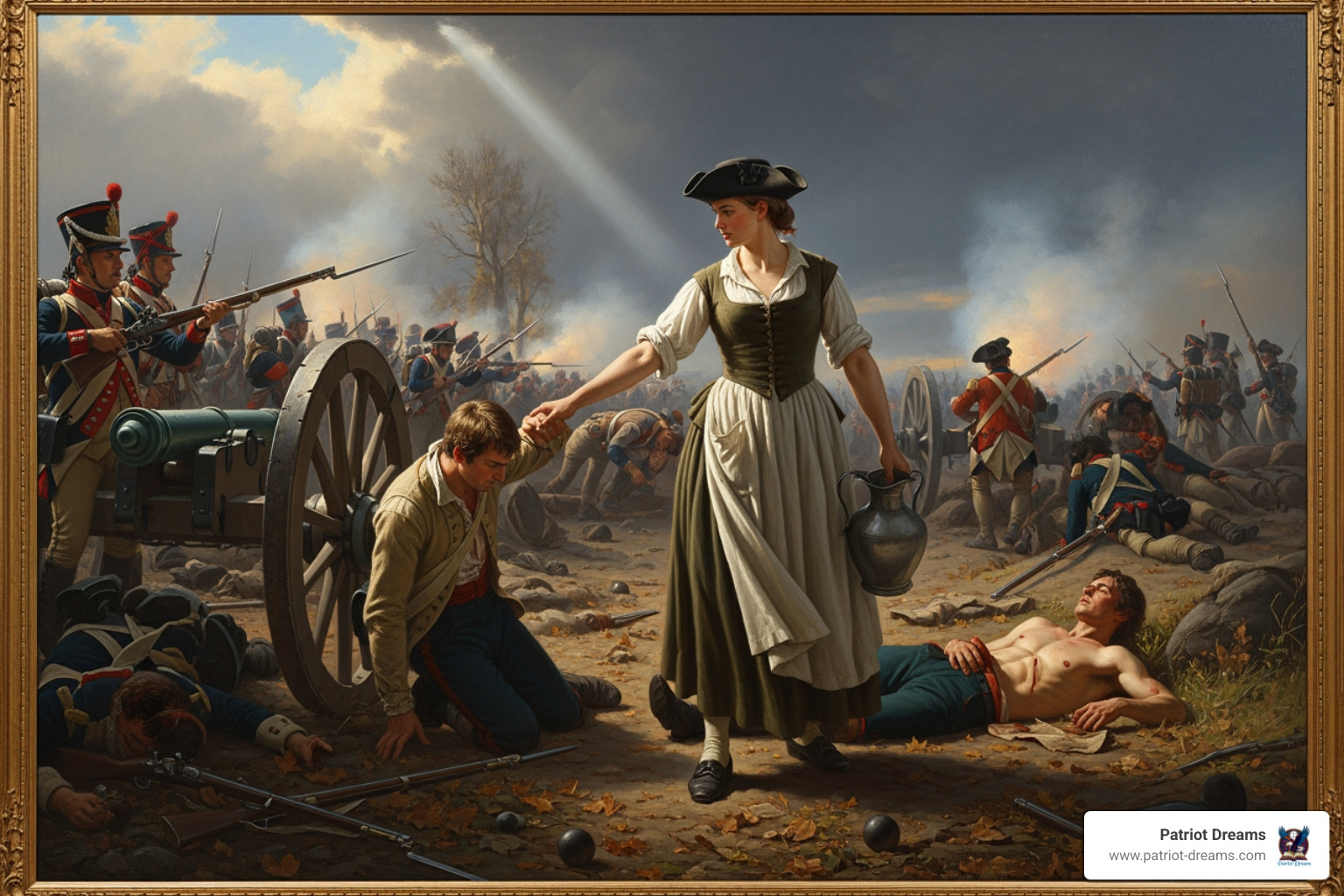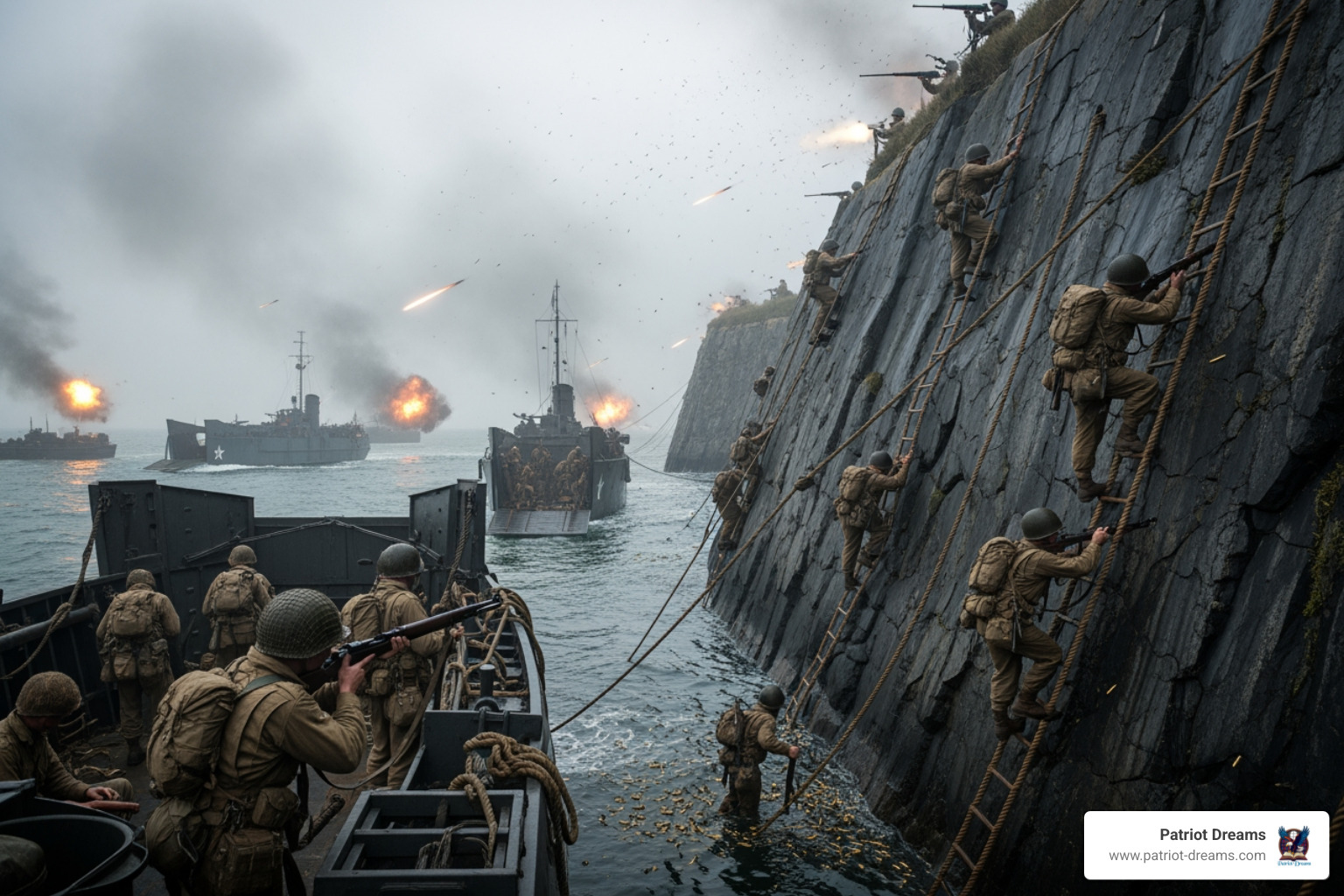When Good Guys Weren’t So Simple: Anti-heroes in American Culture
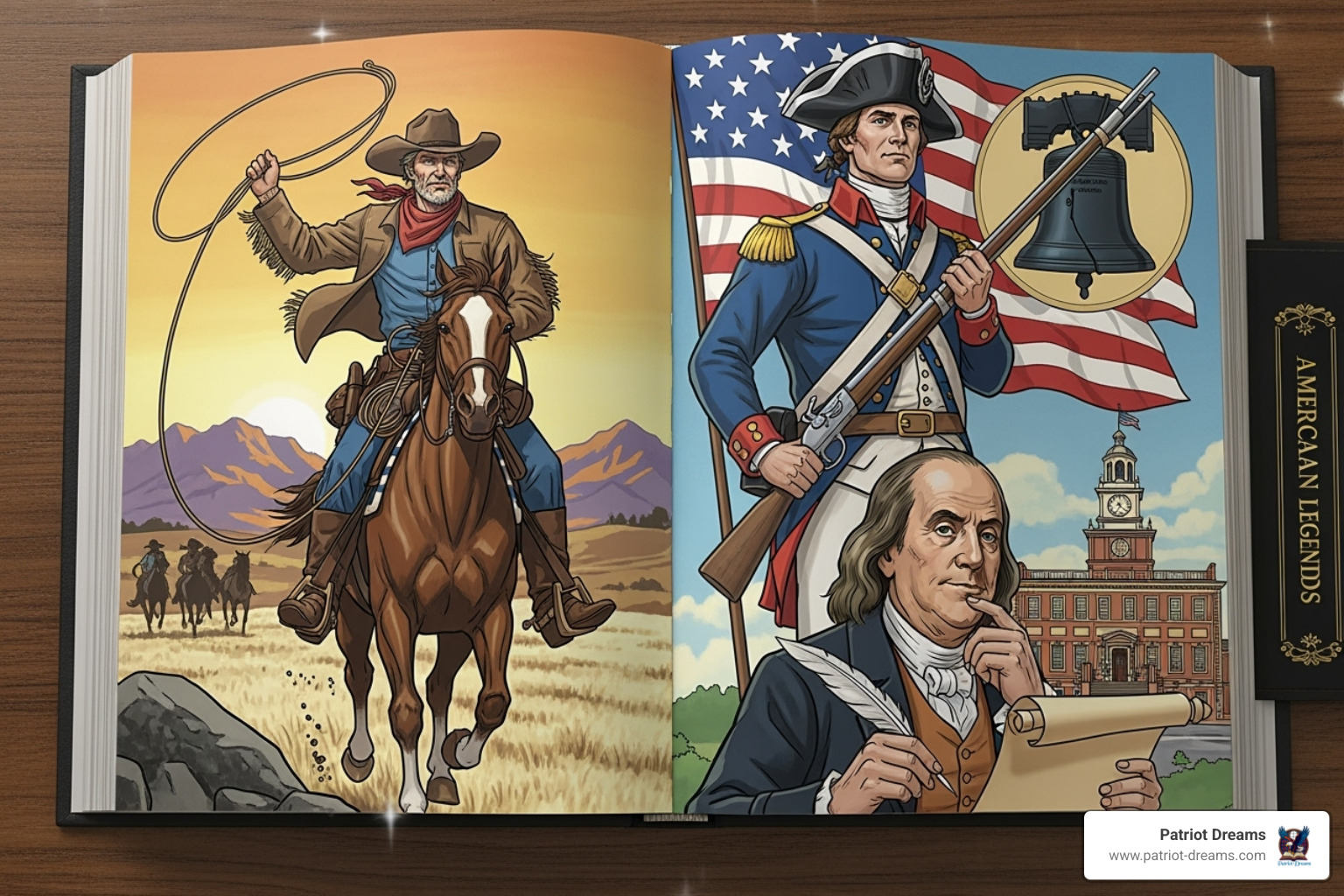

More Than Just Black and White
When Good Guys Weren't So Simple: Anti-heroes in American Culture reflects a fundamental shift in how we tell stories about ourselves as Americans. For generations, our heroes were clear-cut — the cowboy in the white hat, the soldier who never doubted his mission, the founding father without fault. But somewhere along the way, our stories started to change.
Here's what you need to know about anti-heroes in American culture:
- They're not villains — Anti-heroes have noble goals but use questionable methods to achieve them
- They reflect real life — These flawed characters emerged as Americans questioned simple good-vs-evil narratives, especially after events like the Vietnam War
- They're deeply human — Anti-heroes struggle with internal conflict, cynicism, and moral ambiguity, making them relatable
- They've always been here — From Odysseus using trickery to win battles to modern characters like Batman, complex heroes have roots in ancient storytelling
- They help us think — These characters create space for us to explore difficult questions about justice, authority, and what it means to do the right thing
The truth is, the world has always been more complicated than our storybooks suggested. Real people — even the best of us — make mistakes, face tough choices, and sometimes do the wrong thing for the right reasons.
Think about the figures from our own American story. Many of our founders owned slaves while writing about freedom. Our frontier legends were often outlaws before they became heroes. Our most celebrated leaders made decisions that saved lives and cost lives in the same breath.
This isn't about tearing down our heroes. It's about understanding them as real people — and in doing so, understanding ourselves a little better too. When we can look at a character or a historical figure and see both their light and their shadows, we're learning something important about human nature and the choices we all face.
The rise of the anti-hero in American culture — from the cynical cowboys of 1970s Westerns to the complicated protagonists of today's streaming shows — tells us something hopeful. It says we're ready for honest stories. We're ready to see people as they really are, flaws and all, and still find something worth celebrating.
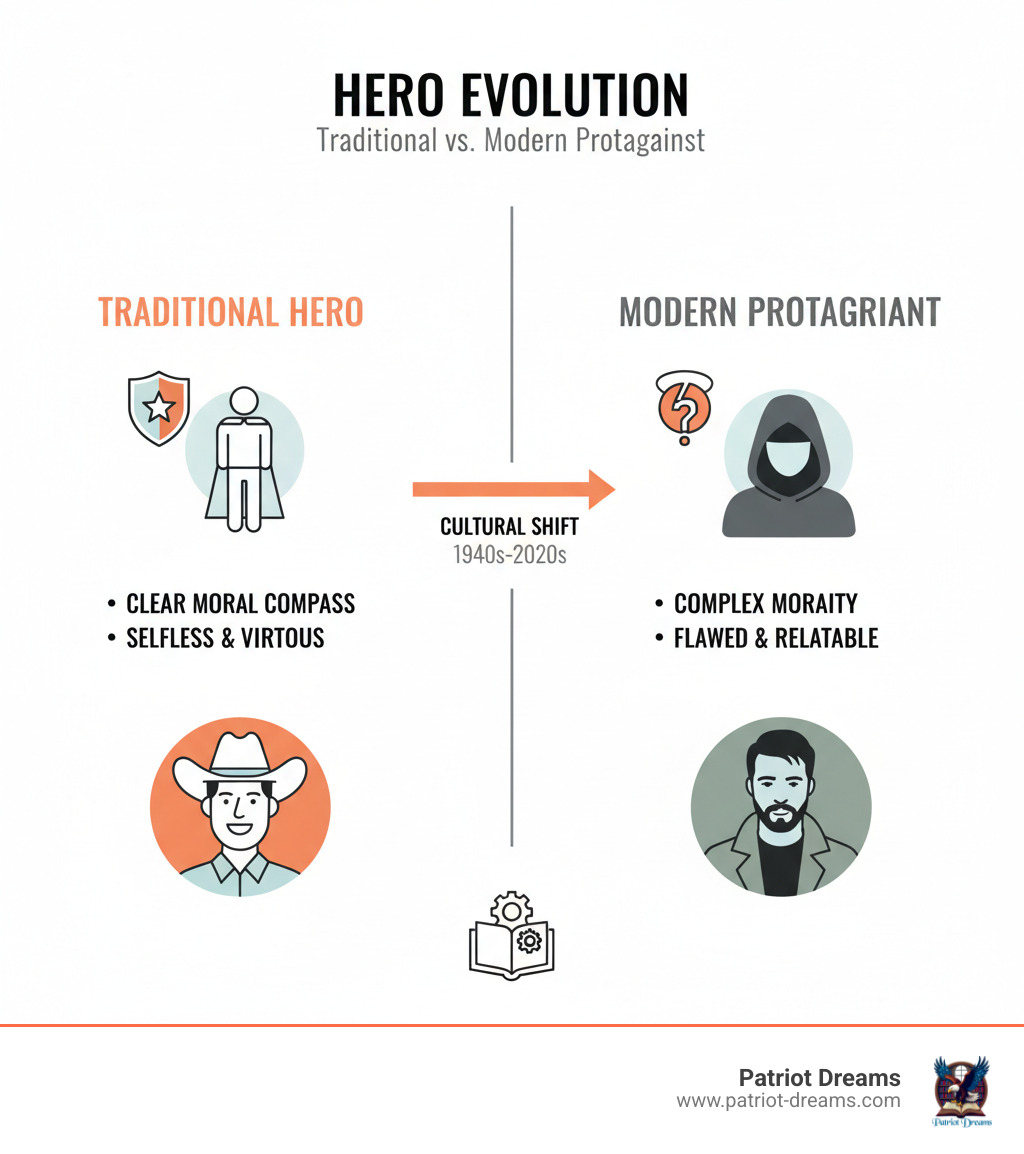
The Changing Face of the American Hero
Remember those old movies where you could always tell who the good guys were? They wore white hats, spoke with steady voices, and never seemed to doubt themselves. For decades, that's exactly how we liked our heroes — clear, certain, and impossibly brave.
The classic hero archetype in American culture was someone like John Wayne — strong, morally upright, always doing what was right without a second thought. We saw it in Superman, soaring above the city to save the day. We celebrated it in our Revolutionary War Heroes, whose courage helped birth our nation. These figures felt larger than life, almost like they'd stepped out of a storybook into our world.
And honestly? There was something beautiful about that simplicity. It gave us something to aspire to, a clear picture of what heroism looked like.
But somewhere along the way, America grew up a bit. We'd been through a lot together as a nation — and our stories started to reflect that journey.
After World War II, when America felt like it could do anything, a different kind of feeling began to settle in. The Vietnam era brought questions we hadn't asked before. Young people came home from war with complicated feelings about what they'd seen and done. Communities across the country were asking hard questions about justice, authority, and what it really meant to do the right thing.
This wasn't cynicism — it was a desire for authenticity in stories. We were ready for heroes who felt more like the people we knew, the neighbors and family members who were doing their best in a complicated world.
The cultural shift happened naturally, the way most real changes do. Filmmakers and writers started creating characters who struggled with tough choices, who sometimes failed, who carried regrets alongside their courage. This was when good guys weren't so simple: anti-heroes in American culture began stepping into the spotlight, and audiences recognized something true in them.
What Defines a "Good Guy" in American Stories?
In the traditional sense, a "good guy" was built on three solid pillars: moral certainty, self-sacrifice, and upholding the law. These heroes knew exactly what was right, they'd give everything for others, and they believed deeply in justice and order.
And you know what? Those are still beautiful qualities. They're still worth celebrating.
But the evolution of heroism has taught us something important: real strength often means acknowledging flaws and wrestling with difficult choices. It means doing the right thing even when you're scared, even when you're not sure, even when you've made mistakes before.
When we look at Historical American Figures, we see this truth everywhere. The people who built and shaped our nation were brilliant and brave — and they were also human. They had doubts. They made mistakes. They struggled with the same kinds of questions we struggle with today.
That's not disappointing. That's inspiring.
Because if they could do remarkable things while being imperfect, while carrying their own burdens and doubts, then maybe we can too. Maybe heroism isn't about being flawless — maybe it's about finding the good in complexity, about showing up and trying your best even when the path isn't clear.
This broader understanding of what makes a hero doesn't diminish the people we admire. It actually helps us appreciate them more fully, seeing both their remarkable achievements and their very human struggles. It reminds us that courage and kindness can exist right alongside uncertainty and imperfection.
And in a way, that makes the whole story of America — with all its complexity — even more worth celebrating.
What Makes a Hero "Anti"? A Look at the Characteristics
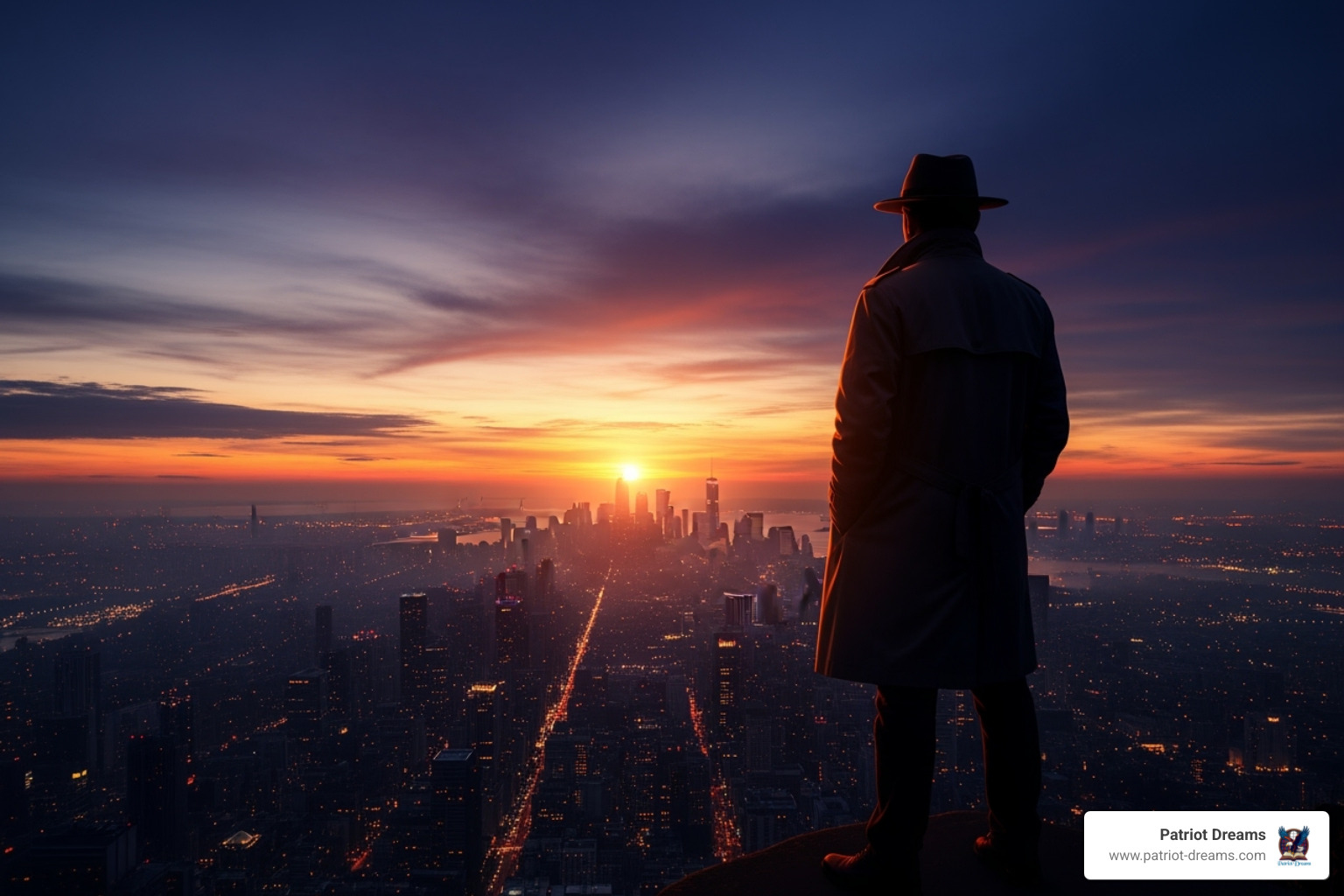
Let's take a moment to understand what we really mean when we talk about an anti-hero. It's an important distinction, because when good guys weren't so simple: anti-heroes in American culture became more prominent, it changed the entire landscape of how we tell stories.
First and foremost, an anti-hero is not a villain. This is crucial to understand. Villains seek power, cause harm intentionally, and often represent chaos or cruelty. Anti-heroes, on the other hand, usually have noble goals at their core — they want to protect someone, right a wrong, or make the world better in some way. The difference lies in how they go about it.
What sets anti-heroes apart is that they lack the traditional heroic qualities we've come to expect. They're not always charming or idealistic. They don't necessarily follow the rules or uphold the law in the way a classic hero would. Instead, they pursue their noble goals with questionable methods. They might lie, steal, or use violence when a traditional hero would find another way. But here's the thing — we understand why they do it, even if we don't always agree with their choices.
Cynicism often marks these characters. They've seen too much of the world's darkness to believe in simple solutions. They feel a deep sense of alienation, disconnected from the society around them or from the ideals they once held. This internal conflict becomes central to who they are — they're constantly wrestling with themselves, questioning their actions, struggling with guilt or regret or anger.
Perhaps most intriguingly, an anti-hero operates with a moral compass that points in a unique direction. It's not broken exactly; it's just calibrated differently than what we might expect. They have a personal code, a set of principles that guide them, but those principles might not align with society's laws or expectations. They do what they believe is necessary, even when it's difficult or when it costs them something precious.
Traditional Hero vs. Anti-Hero vs. Villain
| Trait | Traditional Hero | Anti-Hero | Villain |
|---|---|---|---|
| Motivation | Justice, altruism | Personal code, survival, reluctant good | Power, greed, chaos |
| Methods | Moral, lawful | Morally ambiguous, often breaks rules | Unethical, harmful |
| Personality | Idealistic, charming | Cynical, flawed, lonely | Malevolent, cruel |
| Audience View | Admiration | Empathy, fascination | Fear, opposition |
When you look at this comparison, you can see how the anti-hero occupies a fascinating middle ground. We don't fear them the way we fear villains, but we don't quite admire them the way we admire traditional heroes either. Instead, we feel something deeper — empathy. We see ourselves in their struggles, their doubts, their imperfect attempts to do what's right in a complicated world. And that's exactly what makes them so powerful in American storytelling.
When Good Guys Weren't So Simple: A List of Complex Characters in American Culture
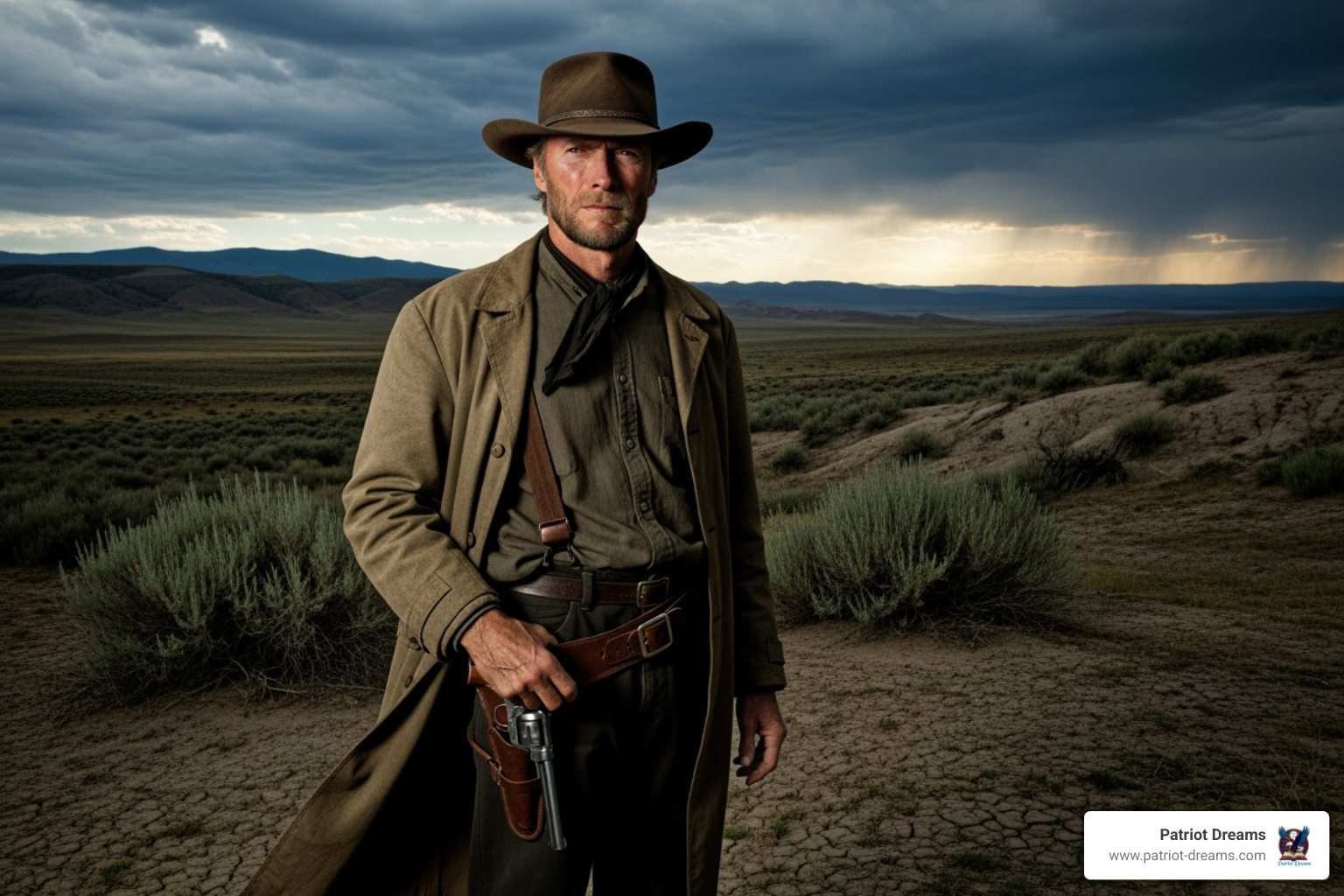
The characters who truly stay with us are often those who challenge our simple notions of good and evil. They're the ones who remind us that being a hero isn't always a straightforward journey, and that sometimes the most meaningful impact comes from the most unlikely people. These are the figures that show us the heart of When Good Guys Weren't So Simple: Anti-heroes in American Culture.
Let's sit down together and explore some of these fascinating figures from American stories — both from our history books and from the tales we tell ourselves on screen. Each one teaches us something important about what it means to be human.
The Outlaw with a Code: The Western Anti-Hero
The American frontier was a place where survival often meant making hard choices. Out there, in that vast and unforgiving landscape, the lines between right and wrong weren't always clear. This rugged world gave birth to a unique kind of hero — the outlaw with a personal code of honor.
Think about Clint Eastwood's William Munny in Unforgiven. Here's a man haunted by a violent past, someone who's tried desperately to leave his outlaw days behind. He's settled down, tried to be a good father, worked an honest farm. But when circumstances pull him back into that darker world, he goes — not for glory or revenge, but because something inside him still believes in a rough kind of justice.
These Western anti-heroes carry the weight of their mistakes like a heavy coat they can never quite take off. They're seeking redemption, or maybe just trying to do one right thing in a world that doesn't make doing right easy. They live outside the law, yes, but they follow their own strict moral code. In their stories, we see a powerful truth: sometimes a flawed person can still stand for something honorable, even when they're doing the right thing for what might seem like all the wrong reasons.
The Complicated Founder: When Good Guys Weren't So Simple in History
When we look back at the people who built our nation, we find something both challenging and ultimately hopeful — they were real people, with all the complexity that comes with being human. Our Founding Fathers weren't marble statues; they were flesh-and-blood individuals navigating unprecedented challenges in a complicated time.
Consider All About Benjamin Franklin: Inventor, Diplomat, and Founding Father. Franklin was brilliant, witty, and instrumental in shaping our nation. He was also a man of his time, with personal choices and views that reflected the world he lived in — both its wisdom and its blind spots.
Then there's Aaron Burr, a figure whose story reads like a cautionary tale about ambition and tragedy. Burr was a Revolutionary War hero, a man of remarkable talent and intelligence. Yet his intense rivalry with Alexander Hamilton ended in that infamous duel, and his later political moves led to accusations of treason. His life shows us how quickly public opinion can shift, how a celebrated figure can become controversial, how one decision can reshape an entire legacy.
These complicated founders remind us that historical figures were human beings, wrestling with the same kinds of choices we face today — just on a grander stage. They had virtues worth celebrating and flaws worth acknowledging. Their stories are richer and more instructive precisely because of this complexity. When we understand them as real people rather than perfect heroes, we learn more about ourselves and the difficult work of building something good in an imperfect world.
The Reluctant Protector: The Modern Complex Hero
Modern storytelling has given us a different kind of hero — someone who doesn't necessarily want the spotlight but feels compelled to step into it anyway. These are the reluctant protectors, driven by a deep need to keep others safe, even when it costs them dearly.
Batman stands as perhaps the most iconic reluctant protector. He operates in the shadows, outside the law, driven by childhood trauma and a burning sense of justice. His heroism is undeniable — he's saved Gotham countless times — but it comes at a tremendous personal cost. He battles his own inner demons even as he fights the city's villains, using methods that push against ethical boundaries and leave him isolated from the very people he protects.
What makes these modern complex heroes so compelling is how authentic their struggles feel. They're not perfect. They doubt themselves. They make mistakes. They carry scars, both visible and invisible. Yet something in them — call it courage, call it stubbornness, call it love — keeps them fighting for what's right.
Much like the fearless spirit of Teddy Roosevelt: The Fearless Leader Every Young American Should Know, who faced down every challenge with determination and heart, these characters show us that heroism isn't about being perfect. It's about perseverance. It's about getting back up when you fall down. It's about confronting your own imperfections and still choosing to do good.
These reluctant protectors remind us of something beautiful: the hero within us all often emerges not from perfection, but from the courage to face our own flaws and still reach for something better. That's a lesson worth holding onto.
Why We Connect with Flawed Heroes
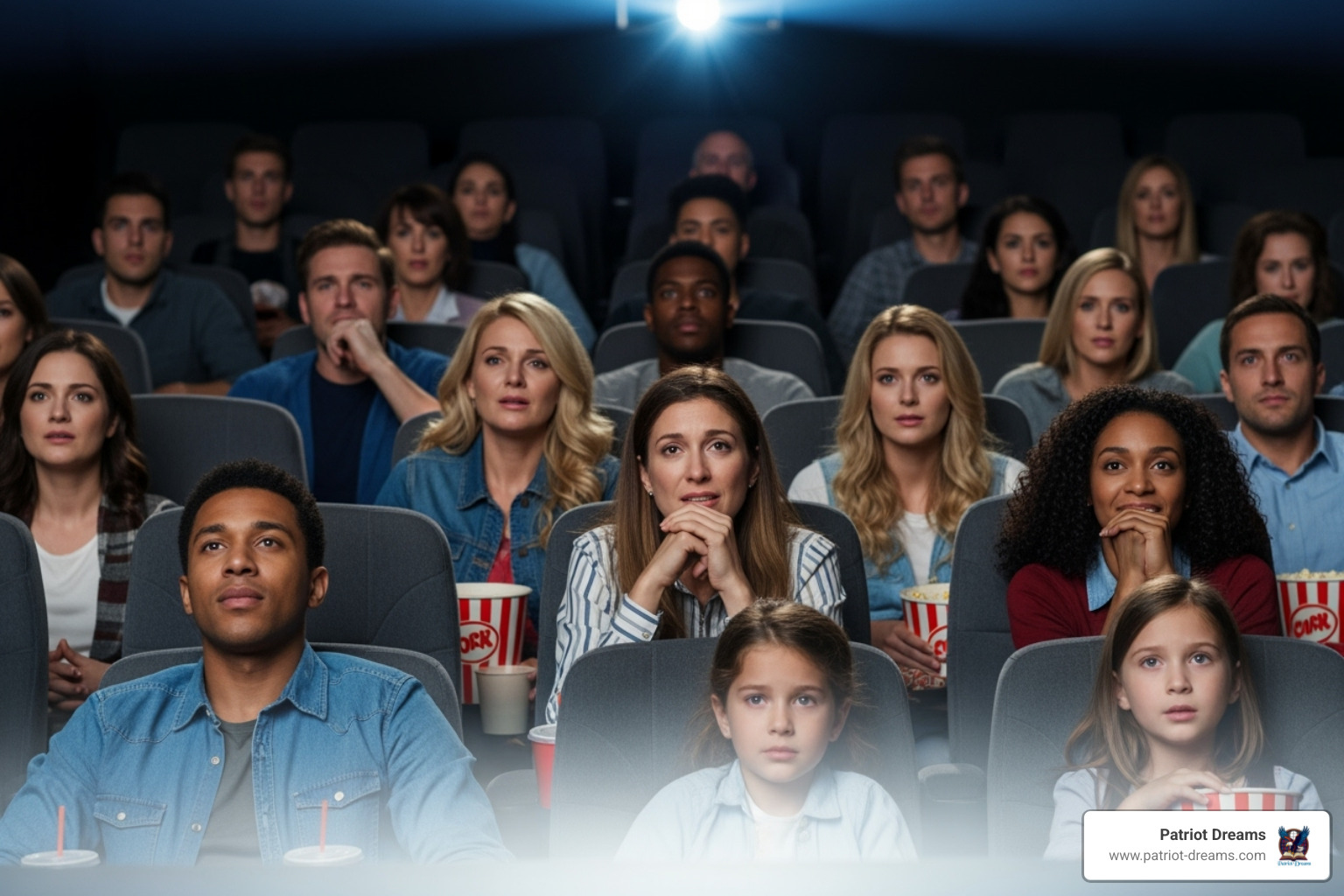
There's something deeply human about watching a character struggle with their own flaws and still try to do the right thing. When we watch these imperfect heroes on screen or read about them in books, something inside us responds with recognition. That's me, we think. I've felt that way. I've faced choices like that.
The truth is, we connect with flawed heroes because they remind us of ourselves. We've all made mistakes. We've all faced situations where the right choice wasn't clear, where doing good required us to step outside our comfort zone, or where our best intentions led to messy outcomes. Imperfection is human, and these characters give us permission to acknowledge our own struggles without shame.
A 2015 study found something fascinating: audiences often empathize more with anti-heroes than traditional heroes. It's not that we've stopped valuing goodness or heroism. Rather, we've come to appreciate stories that acknowledge the full spectrum of human experience. As Professor Tom Roach from Bryant University beautifully puts it, anti-heroes are relatable because they are "flawed, internally conflicted, morally ambiguous, full of righteous anger, or maybe just a little lost." Sometimes, he notes, "they do terrible things for all the right reasons." This is why we love antiheroes in pop culture — they create a safe space for us to explore the complexities of being human.
These characters challenge us to look beyond simple answers. They ask us to consider: What would I do in that situation? How would I balance competing values? They invite us into a conversation about what it really means to be good in a complicated world.
When Good Guys Weren't So Simple: Reflecting Our Own Questions
The way we tell stories about heroes has changed because we've changed. In modern life, we face questions our grandparents might never have imagined. We question authority more openly. We recognize that many issues don't have easy answers. We live in a world where the news reminds us daily that morality is rarely black and white.
When Good Guys Weren't So Simple: Anti-heroes in American Culture reflects this shift in our collective consciousness. The term 'anti-hero' itself saw a dramatic increase in usage around the late 2000s and early 2010s, right when television shows like 'Breaking Bad' and 'Dexter' were captivating audiences with their morally complex protagonists. This wasn't just a trend in entertainment — it was a mirror held up to society.
Academic research on the rise of the anti-hero shows that the popularity of these characters is linked to a growing societal interest in exploring the complexities of human nature. We're moving away from simplistic good versus evil narratives because real life rarely offers such clarity. Surveys indicate that audiences find anti-hero characters more compelling precisely because of their imperfections and internal struggles.
These stories serve an important purpose. They help us explore difficult ideas about right and wrong in a safe space, encouraging both empathy and critical thinking. When we watch a character wrestle with an impossible choice, we're practicing how to think through our own moral dilemmas. When we find ourselves sympathizing with someone who's made questionable decisions, we're learning to extend grace and understanding to the real people in our lives — and to ourselves.
The best storytellers walk a careful line. They create anti-heroes who might do terrible things, but they give us enough context — a sympathetic backstory, clear motivations, or a relatable internal struggle — to understand why. They let us see the person behind the actions. This isn't about excusing bad behavior; it's about recognizing that even good people can make poor choices, and that understanding someone's journey doesn't mean approving of every step they take.
In the end, these complex characters invite us to be active participants in their stories. They challenge us to think, to question, and to recognize that the line between hero and anti-hero often runs right through the human heart.
Conclusion: Finding the Hero in Every Human Story
There's something deeply reassuring about realizing that the heroes in our stories don't have to be perfect. The enduring appeal of complex characters — those figures who show us that When Good Guys Weren't So Simple: Anti-heroes in American Culture — speaks to our collective desire for truth and humanity in storytelling. These flawed individuals, with their internal struggles and morally complicated choices, don't diminish what heroism means. If anything, they make it richer, more accessible, more real.
They remind us that courage and purpose can emerge from unexpected places, and that even the most complicated among us can inspire reflection on our own values. A person doesn't need to be flawless to be worthy of our attention or our respect. Sometimes the most meaningful lessons come from those who stumbled, made mistakes, and kept trying anyway.
At Patriot Dreams, we believe that understanding our history with kindness means recognizing the full spectrum of human experience. It means acknowledging that everyone has a story — the Revolutionary War soldier and the frontier outlaw, the visionary founder and the reluctant hero. These stories, no matter how complex or contradictory they might seem, all add something valuable to the rich, vibrant mix of our nation.
Just as we learn from the shining examples of traditional heroes, we gain profound insights from those who walked a more winding path. Their journeys encourage us to look deeper, to ask harder questions, and ultimately, to find the hero in every human story — including our own. Because at the end of the day, we're all a little bit flawed, a little bit complicated, and still capable of extraordinary things.
We invite you to Explore more stories about America: 250 Years in the Making and find the countless narratives that have shaped our country, celebrating the diverse and often complicated individuals who made it what it is today. Every story matters. Every voice adds something. And together, they tell the true story of America.
Join the Patriot Dreams Community
Download the app today and start your journey through American history and personal legacy.

Explore Our Latest Insights
Dive into stories that shape our American legacy.

